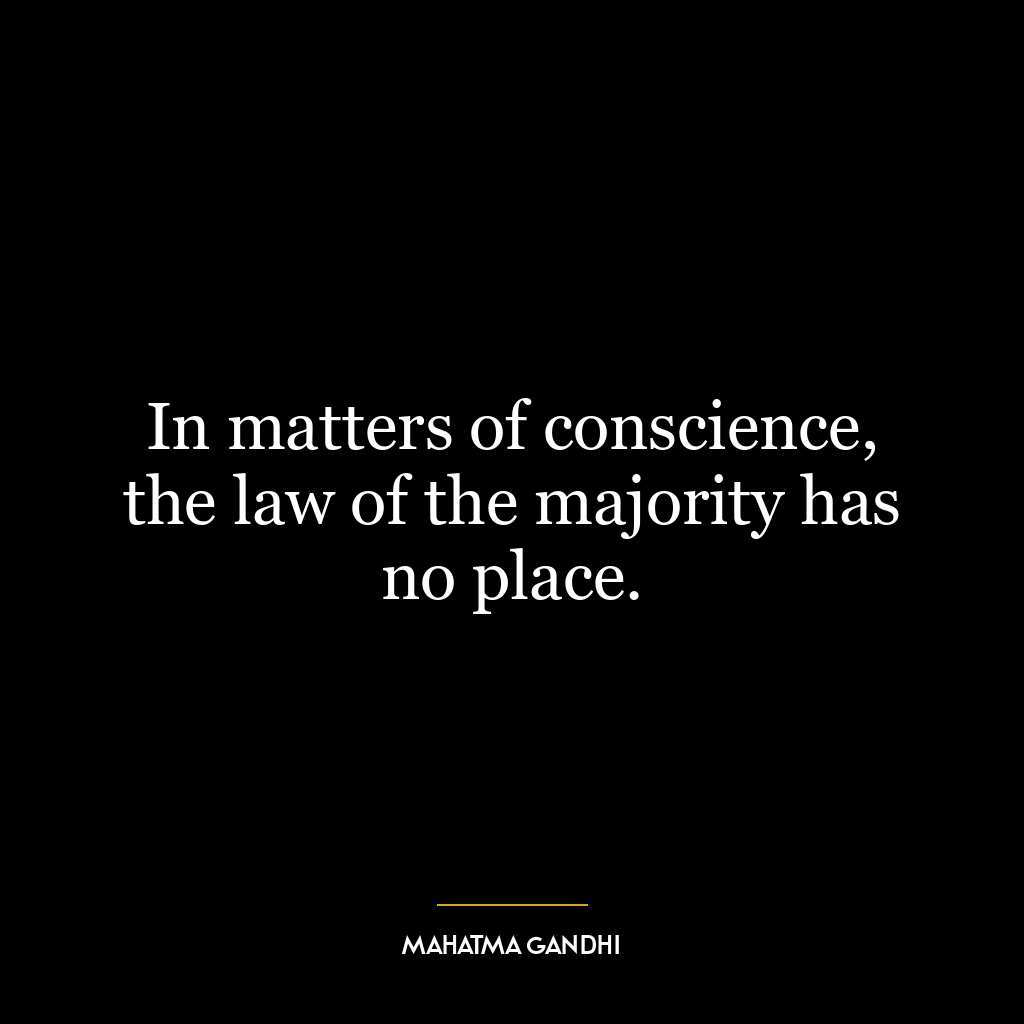In matters of conscience, the law of the majority has no place.
This quote implies that when it comes to one’s own moral compass and personal beliefs (conscience), the popular opinion or the majority rule should not dictate or influence it. It emphasizes the importance of individuality and personal integrity over conformity.
In essence, Gandhi is asserting that the majority’s opinion is not always morally right or just. Therefore, individuals should not compromise their ethical principles and values to align with the majority. Instead, they should stand firm in their convictions, even if they stand alone.
Applying this quote to today’s world, it encourages us to critically evaluate societal norms and popular opinions rather than blindly accepting them. In the era of social media and digital communication, it’s easy to get swayed by the majority’s opinion. However, it’s crucial to question these opinions, especially when they conflict with our values and principles.
For instance, in the context of social justice issues, many injustices have been normalized or overlooked due to the majority’s indifference or bias. But this quote serves as a reminder that we should not let the majority’s stance deter us from standing up for what we believe is right.
In terms of personal development, this quote suggests the importance of self-awareness and integrity. It encourages us to know our values, stand by them, and not be afraid to voice our opinions, even if they go against the grain. It’s about being true to oneself and not compromising on our principles for the sake of fitting in or pleasing others. This can lead to personal growth, self-confidence, and a strong sense of identity.
In conclusion, this quote emphasizes the importance of individual conscience and integrity over the majority’s rule. It encourages us to question, challenge, and stand up against societal norms and popular opinions that conflict with our values and principles.









